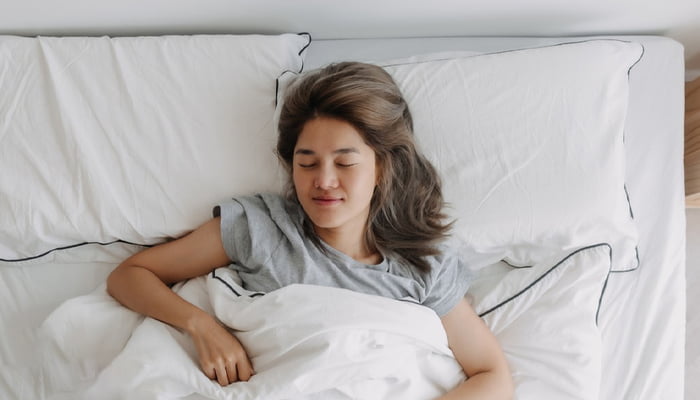
Sleep is a vital component of overall health and well-being, playing a crucial role in physical and mental restoration. A healthy sleep routine not only improves mood and cognitive function but also supports immune health, metabolism, and heart health. However, in today’s fast-paced world, maintaining a consistent and restful sleep routine can be challenging. Disruptions to sleep can lead to various health issues, including fatigue, reduced productivity, and increased susceptibility to illness. This article provides tips for maintaining a healthy sleep routine, ensuring that you get the restorative rest your body needs.
1. Establish a Consistent Sleep Schedule

One of the most effective ways to maintain a healthy sleep routine is to establish a consistent sleep schedule. Going to bed and waking up at the same time every day helps regulate your body’s internal clock, making it easier to fall asleep and wake up naturally. Consistency is key, even on weekends or days off, as varying your sleep schedule can disrupt your circadian rhythm and lead to poor sleep quality. By sticking to a regular sleep schedule, you can train your body to expect sleep at a certain time, resulting in more restful and rejuvenating sleep.
2. Create a Relaxing Bedtime Routine

A relaxing bedtime routine can signal to your body that it’s time to wind down and prepare for sleep. Activities such as reading a book, taking a warm bath, practicing gentle yoga, or listening to calming music can help ease the transition from wakefulness to sleep. The goal is to engage in calming activities that help reduce stress and anxiety, making it easier to fall asleep. Avoid stimulating activities, such as watching TV or using electronic devices, right before bed, as they can interfere with your ability to relax and fall asleep.
3. Optimize Your Sleep Environment

Your sleep environment plays a significant role in the quality of your sleep. Creating a comfortable and conducive sleep environment can make a big difference in how well you sleep. Keep your bedroom cool, quiet, and dark to create the ideal conditions for sleep. Investing in a comfortable mattress and pillows that support your sleeping position can also enhance your sleep quality. Additionally, consider using blackout curtains, white noise machines, or earplugs to block out any light or noise that might disturb your sleep. A well-optimized sleep environment can help you fall asleep faster and stay asleep throughout the night.
4. Be Mindful of Your Diet and Hydration

What you eat and drink can have a significant impact on your sleep. To maintain a healthy sleep routine, be mindful of your diet, especially in the hours leading up to bedtime. Avoid large meals, caffeine, and alcohol close to bedtime, as they can disrupt sleep by causing discomfort, increasing alertness, or leading to nighttime awakenings. Instead, opt for a light snack if you’re hungry before bed, and consider foods that promote sleep, such as bananas, almonds, or herbal teas like chamomile. Staying hydrated throughout the day is important, but try to limit fluid intake in the evening to prevent waking up for bathroom trips during the night.
5. Incorporate Regular Physical Activity

Regular physical activity is beneficial for overall health and can also improve sleep quality. Engaging in moderate exercise, such as walking, swimming, or cycling, can help you fall asleep faster and enjoy deeper sleep. However, the timing of your exercise matters—try to complete your workout at least a few hours before bedtime, as exercising too close to bedtime can increase energy levels and make it harder to wind down. Incorporating regular physical activity into your daily routine not only supports a healthy sleep routine but also enhances your overall well-being.
6. Limit Exposure to Screens Before Bed

Exposure to screens before bed, such as those on smartphones, tablets, and computers, can interfere with your sleep by suppressing the production of melatonin, the hormone that regulates sleep. The blue light emitted by screens can trick your brain into thinking it’s still daytime, making it harder to fall asleep. To maintain a healthy sleep routine, limit screen time at least an hour before bed and consider using blue light filters or glasses if you must use electronic devices in the evening. Instead of screen time, engage in relaxing activities that help prepare your mind and body for sleep.
7. Manage Stress and Practice Relaxation Techniques

Stress and anxiety are common culprits of sleep disturbances. Managing stress through relaxation techniques can improve your ability to fall asleep and stay asleep. Practices such as deep breathing exercises, meditation, progressive muscle relaxation, and mindfulness can help calm the mind and reduce stress levels before bed. Incorporating these techniques into your bedtime routine can create a sense of tranquility and make it easier to drift off to sleep. Regularly managing stress throughout the day can also contribute to a more restful night’s sleep.
8. Be Consistent with Your Wake-Up Routine

Just as a consistent bedtime routine is important, so is a consistent wake-up routine. Waking up at the same time every day, even on weekends, helps reinforce your body’s internal clock and promotes better sleep quality. Exposure to natural light in the morning can help regulate your circadian rhythm and signal to your body that it’s time to wake up. Developing a morning routine that includes activities like stretching, a healthy breakfast, and exposure to sunlight can set a positive tone for the day and support a healthy sleep routine.
Conclusion
Maintaining a healthy sleep routine is essential for overall health and well-being. By establishing a consistent sleep schedule, creating a relaxing bedtime routine, optimizing your sleep environment, and being mindful of your diet, exercise, and screen time, you can improve the quality of your sleep. Additionally, managing stress and maintaining a consistent wake-up routine are key components of a healthy sleep pattern. Prioritizing these practices will help you achieve restorative sleep, leading to better physical and mental health, increased energy levels, and enhanced quality of life. Making sleep a priority is one of the most important steps you can take toward a healthier, happier you.
